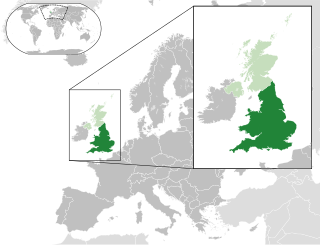
The Theft Act 1978 is an Act of the Parliament of the United Kingdom. It supplemented the earlier deception offences contained in sections 15 and 16 of the Theft Act 1968 by reforming some aspects of those offences and adding new provisions. See also the Fraud Act 2006.
False accounting is a statutory offence in England and Wales, Northern Ireland and the Republic of Ireland.

The Official Secrets Act 1989 is an Act of the Parliament of the United Kingdom that repeals and replaces section 2 of the Official Secrets Act 1911, thereby removing the public interest defence created by that section.
Conspiracy to defraud is an offence under the common law of England and Wales and Northern Ireland.
Obtaining pecuniary advantage by deception was formerly a statutory offence in England and Wales and Northern Ireland. However, the offence still subsists in certain other common law jurisdictionswhich have copied the English criminal model.

The Infanticide Act 1938 is an Act of the Parliament of the United Kingdom. It creates the offence of infanticide for England and Wales.

The Interpretation Act 1978 is an Act of the Parliament of the United Kingdom. The Act makes provision for the interpretation of Acts of Parliament, Measures of the General Synod of the Church of England, Measures of the Church Assembly, subordinate legislation, "deeds and other instruments and documents", Acts of the Scottish Parliament and instruments made thereunder and Measures and Acts of the National Assembly for Wales and instruments made thereunder. The Act makes provision in relation to: the construction of certain words and phrases, words of enactment, amendment or repeal of Acts in the Session they were passed, judicial notice, commencement, statutory powers and duties, the effect of repeals, and duplicated offences.
Obtaining property by deception was formerly a statutory offence in England and Wales and Northern Ireland.
Burglary is a statutory offence in England and Wales.

The Unlawful Drilling Act 1819, also known as the Training Prevention Act is an Act of the Parliament of the United Kingdom. It was one of the Six Acts passed after the Peterloo massacre.

The Sexual Offences (Amendment) Act 1976 is an Act of the Parliament of the United Kingdom. It made provision in relation to rape and related offences. Except for subsections (1) and (2) and (4) and (6) of section 7, the whole Act is repealed. Section 7(2) now provides the definition of the expression "a rape offence" in relation to court martial proceedings. The other remaining provisions are purely supplemental.
Abstracting electricity is a statutory offence in England and Wales, Northern Ireland and the Republic of Ireland.
Removing article from place open to the public is a statutory offence in England and Wales and Northern Ireland.
Evasion of liability by deception was formerly a statutory offence in England and Wales and Northern Ireland.
Obtaining services by deception is a statutory offence in the Republic of Ireland. It has been abolished in England and Wales and Northern Ireland.

The Forgery Act 1913 was an Act of the Parliament of the United Kingdom.
Assault with intent to resist arrest is a statutory offence of aggravated assault in England and Wales and Northern Ireland and the Republic of Ireland.

The Perjury Act 1911 is an Act of the Parliament of the United Kingdom. It creates the offence of perjury and a number of similar offences.

The Genocide Act 1969 was an Act of the Parliament of the United Kingdom. It gave effect to the Convention on the Prevention and Punishment of the Crime of Genocide approved by the General Assembly of the United Nations on 9 December 1948.



